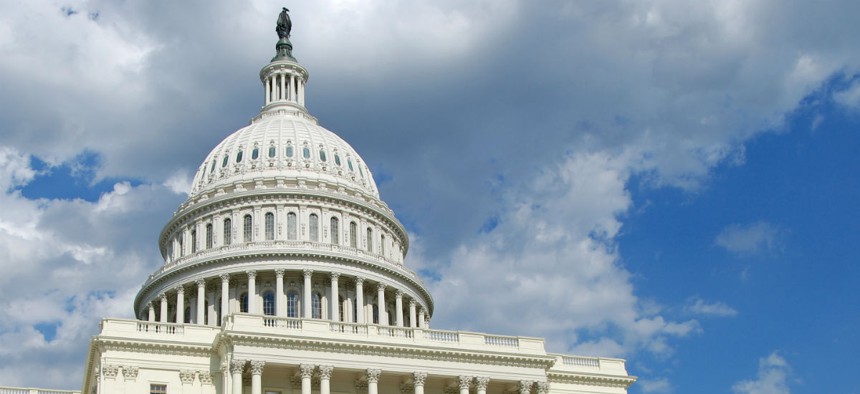
Full-Year Continuing Resolution Would Trigger Sequester, Budget Office Says
Simply continuing fiscal 2017 spending levels would exceed spending caps.
If lawmakers opt to do the bare minimum with appropriations bills and keep agencies running on autopilot for all of fiscal 2018, it would trigger automatic across-the-board spending cuts throughout government, a new analysis has found.
President Trump has already signed a stopgap spending measure to maintain the status quo from the beginning of the new fiscal year on Oct. 1 through Dec. 8. A Congressional Budget Office review of that bill found that continuing the same spending levels for the full fiscal year would likely force the Office of Management and Budget to revoke some of the funds that Congress had appropriated. About $2.4 billion would be sequestered from defense accounts, while about $2.3 billion would be sequestered from non-defense accounts, CBO estimated. The Office of Management and Budget would make the final determination on the amounts of any sequestration.
The 2011 Budget Control Act set caps for both defense and non-defense spending for 10 years starting in 2013, with any money allocated above those levels precipitating an automatic revocation. A sequester has only actually occurred in fiscal 2013, as two separate budget deals raised the caps in fiscal years 2014 through 2017.
No such agreement is yet in place for fiscal 2018, meaning the BCA limitations are scheduled to kick back in. The White House has encouraged lawmakers to pass such an agreement for the upcoming fiscal year, but only so it can increase defense spending. In his budget, Trump proposed boosting defense spending by $54 billion and cutting non-defense spending by the same amount.
The administration has endorsed an omnibus appropriations bill recently passed by the House, which the Office of Management and Budget conceded would cause a $72 billion sequestration on the defense side. OMB urged lawmakers to make “the necessary changes to the discretionary caps” so that would not occur. It did not respond to questions about whether it would also support raising non-defense caps to avoid a sequester of those accounts as well. Democrats are reluctant to make any adjustments that don't treat civilian and defense spending equally.
Lawmakers have bought time through early December to avoid a lapse in appropriations, but several sticking points remain. In addition to adjusting the statutory spending caps, lawmakers and the White House are at odds over Trump’s proposed wall along the U.S.-Mexico border. The president has promised to shut down the government if the wall is not funded.







